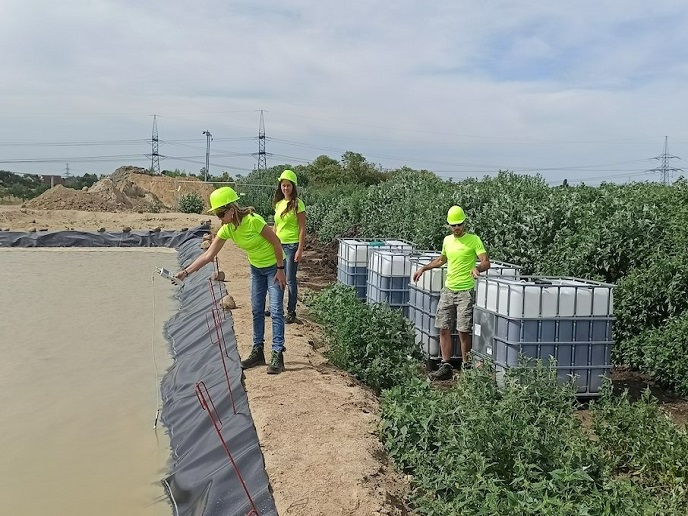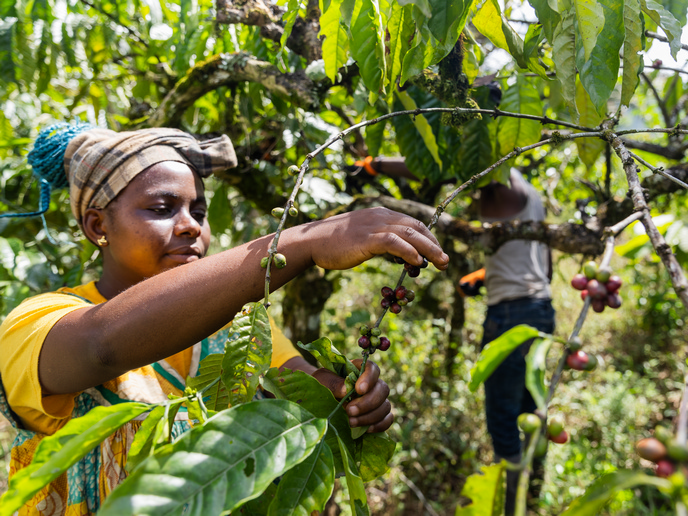Bioleaching eco-mining benefits agricultural sustainability
Mining and farming both have significant sustainability challenges. Mining often uses hazardous chemicals when extracting metals, causing environmental pollution. Furthermore, underinvestment in innovations to better mine local primary and secondary resources, result in a European dependency on imports. Meanwhile, the widespread use of chemical pesticides and herbicides in agriculture destroys soil microbiomes, reducing the nutrients available to plants. Farmers typically compensate using chemical fertilisers which leach into groundwater, contaminating food and drinking water. “With a third of global farmland severely degraded(opens in new window), this is a vicious circle. We urgently need viable alternatives,” notes Darina Štyriaková, the project coordinator of BioRevolution (Biosolution for global mineral crisis and increased food production without chemicals) and CEO of ekolive(opens in new window), the project host. The EU-supported project addresses both challenges with a patented biotechnology (InnoBioTech®) which co-opts the natural process of microbial weathering of minerals. The technology – the most comprehensive of its kind available – has been ETV-certified(opens in new window) and also won the WUR(opens in new window) sustainability award. Two biostimulant products, ekofertile and microfertile, are already in the organic agriculture marketplace. “Our natural mining innovation gives industrial residue a second life as biostimulants – great for sustainable agriculture and the circular economy!” remarks Štyriaková.
Giving nature a boost
After identifying and collecting the best bacteria for accelerated mineral weathering, the team has developed a patented technique to rapidly multiply them. The bacteria dissolve minerals from raw materials, creating leachates which are then treated to form liquid nutrients. When applied to waste silica sand, probiotic bacteria dissolve minerals, leaving behind pure resistant silica – useful for glass or ceramics for example. The dissolved minerals (such as iron, manganese silicon, cobalt and magnesium), alongside organic acids and proteins, provide biostimulating metabolites for ekofertile. “Ekofertile revitalises unhealthy plants and increases immunity against pathogens and resistance to high temperatures. It also increases yield, while improving root systems and fruit sugar content,” notes Štyriaková. The second product, microfertile, is based on leaching silicified rock residues, rich in other beneficial microorganisms and their metabolites, and contains all 17 essential plant nutrients(opens in new window). “Microfertile increases chlorophyll and stimulates photosynthesis, with antifreeze proteins preventing frost damage. The nutrients result in more buds and leaves, improving plant quality and yields,” adds Štyriaková. Depending on farming set-ups, the products can be sprayed on leaves or used in drip irrigation for roots.
The fruits of bacterial labour
Six production facilities across central European countries have successfully trialled BioRevolution’s range of products. According to Štyriaková, “tomato yields tripled, with abiotic stress resistance increased up to 35 degrees centigrade. Potatoes were bigger, infection-free and ready for market two weeks earlier, with yields increased by 50 %. Strawberry yields increased 60 % without pesticides, with 150 % more sugar and commercial viability after one growing year. We got similar successes with around 70 other plants.” Reliant only on large basins, not bioreactors, the BioRevolution method is scalable, with no energy consumption needed. The process is also fast, needing only two to seven days processing to generate around 10 billion active bacteria in one litre of biostimulant. “Our technology simply accelerates a natural process, so that it occurs in days or weeks, not decades,” remarks Štyriaková.
‘Jack of all trades’ technology
Offering a wide variety of possible applications, BioRevolution’s technology contributes directly to the EU’s Green Deal(opens in new window), with the target of a 50 % reduction in agrochemicals by 2030. “Aside from providing farmers with higher profits, our solution helps increase food security, saves water, fixes CO2, decontaminates soil and renews biodiversity,” says Štyriaková. With the technology now mature, the team is currently developing partnerships and preparing a market launch. “To change the mindset of many farmers disappointed by previous bio-alternative products, first we are working with big corporates. Thankfully, the evidence speaks for itself(opens in new window),” concludes Štyriaková.







